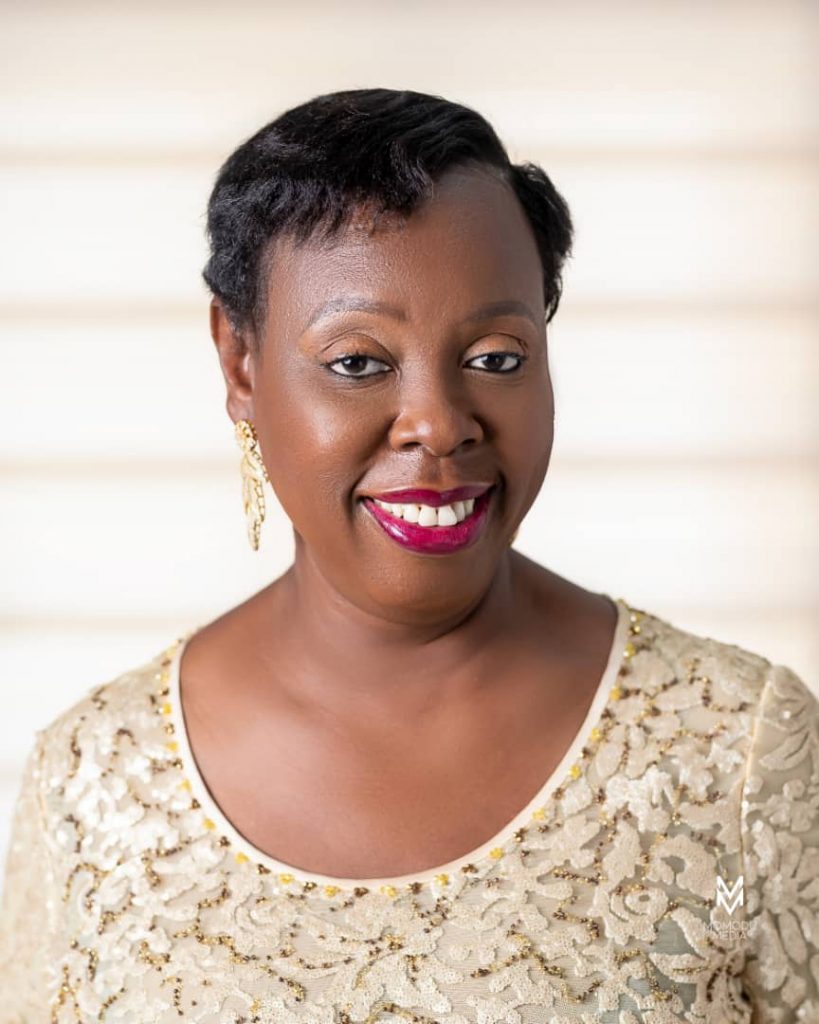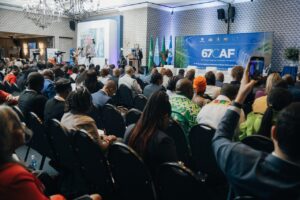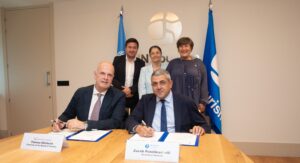Founded a few years ago, the African Women in Maritime, otherwise known as WimAfrica with the aim of putting together the professional of the maritime industry in the continent, have changed the landscape of the sector. WimAfrica has been created in the framework of the African Union Agenda 2063 in order to empower women and invigorate the business. Mrs. Jean Chiazor Anishere, president of the organization enthusiastically agreed to have this cordial conversation.
Interview by Franck Olivier Kra
Franck Olivier Kra: Mrs. Jean Anishere could you introduce yourself?
Jean Chiazor Anishere: Alright. Good morning, everyone. My name is Jean Chiazor Anishere. I am a Legal Practitioner and I practice Maritime law in Nigeria. I am also a Notary Public and a Senior Advocate of Nigeria, which is the equivalent of Queen’s Counsel in the United Kingdom. Presently, I am the President of the African Women in Maritime, otherwise known as WimAfrica.
“In WimAfrica, when it comes to tourism, our Blue Economy strategy is thinking globally and acting locally … and this is done through the support of our national chapters”
Q.: Why does African Women in Maritime or WIMAfrica matter and how did you come with this idea?
A.: Sometime in 2014 during the African Union Heads of States General Assembly in Addis – Ababa, Ethiopia, under the theme: ‘Year of Women’s Empowerment and Development Towards Africa’s Agenda 2063’, Dr. Nkosazana Dlamini Zuma who was the first female chairperson of the A.U., made a clarion call for African women to come together and form a continental platform towards achieving Africa Union’s Agenda 2063, with particular reference to the sustainability of Africa’s Blue Economy, through the empowerment of African Women. Although at that time, the focus for her, was on maritime. She appreciated that in Europe and other parts of the Globe, there are various associations for women in the maritime industry, but there was no such for African women. So Dr. Zuma, in her wisdom, made a call to African women in the Maritime industry to come together to set up a continental platform for African women, to add their views, to network, to promote the growth of the maritime industry in Africa, and of course, to support the A.U. Agenda 2063, which is the promotion of a sustainable Blue Economy vide the empowerment of African women in the Maritime industry.
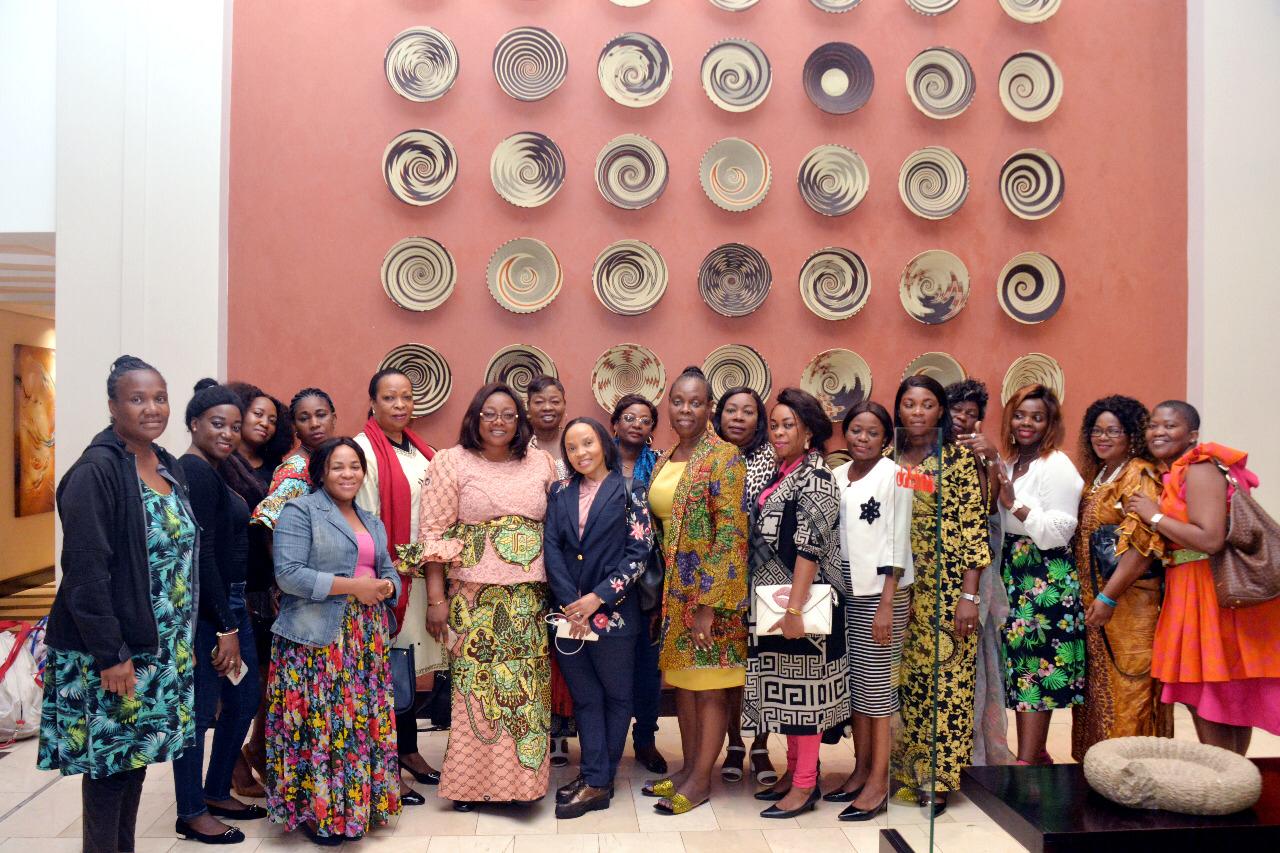
“Dr. Nkosazana Dlamini Zuma who was the first female chairperson of the A.U. in her wisdom, made a call to African women in the Maritime industry to come together to set up a continental platform for African women… to promote the growth of the maritime industry in Africa in the framework of the A.U. Agenda 2063”
So we met in Luanda, Angola on the 26 of March 2015, under the hosting of AMPACA (Angola Maritime Association). WimAfrica was born on that day! It was a huge assembly and very colorful as we had great and skilled African Women from home and abroad, from over 30 African countries converge to chart the course for African Women in the Maritime Industry in their various countries and organizations.
Q.: What is the nature of your cooperation with the African Union and are there some achievements so far?
A.: Oh, yes. We immediately went into an MoU that is a Memorandum of Understanding with the African Union, on common issues relating to the Blue Economy of Africa and the empowerment of women in the Maritime Industry in Africa. We pride ourselves on saying that we are the baby of the African Union, remembering that our origin was founded on Dr. Zuma’s brilliant initiative. The blue economy, as we all know it is an initiative to develop the facts of the importance of Africa’s oceans and seas, the wealth and the energy production that emanate from Africa’s oceans and seas.
“The organization, now known as WimAfrica, was born on 26 March 2015 in Luanda, Angola”.
It is important to note the fact that 90% of the world’s economy is through the oceans and seas. Thus, when we talk about the blue economy, the blue economy relates to the oceans and seas, the coastal areas, and how we can take the benefit of tourism, energy, etc. It’s got diverse benefits, businesses, and secretion of wealth in fisheries, agriculture, etc. All-encompassing, all makeup what we know as the blue economy concept.
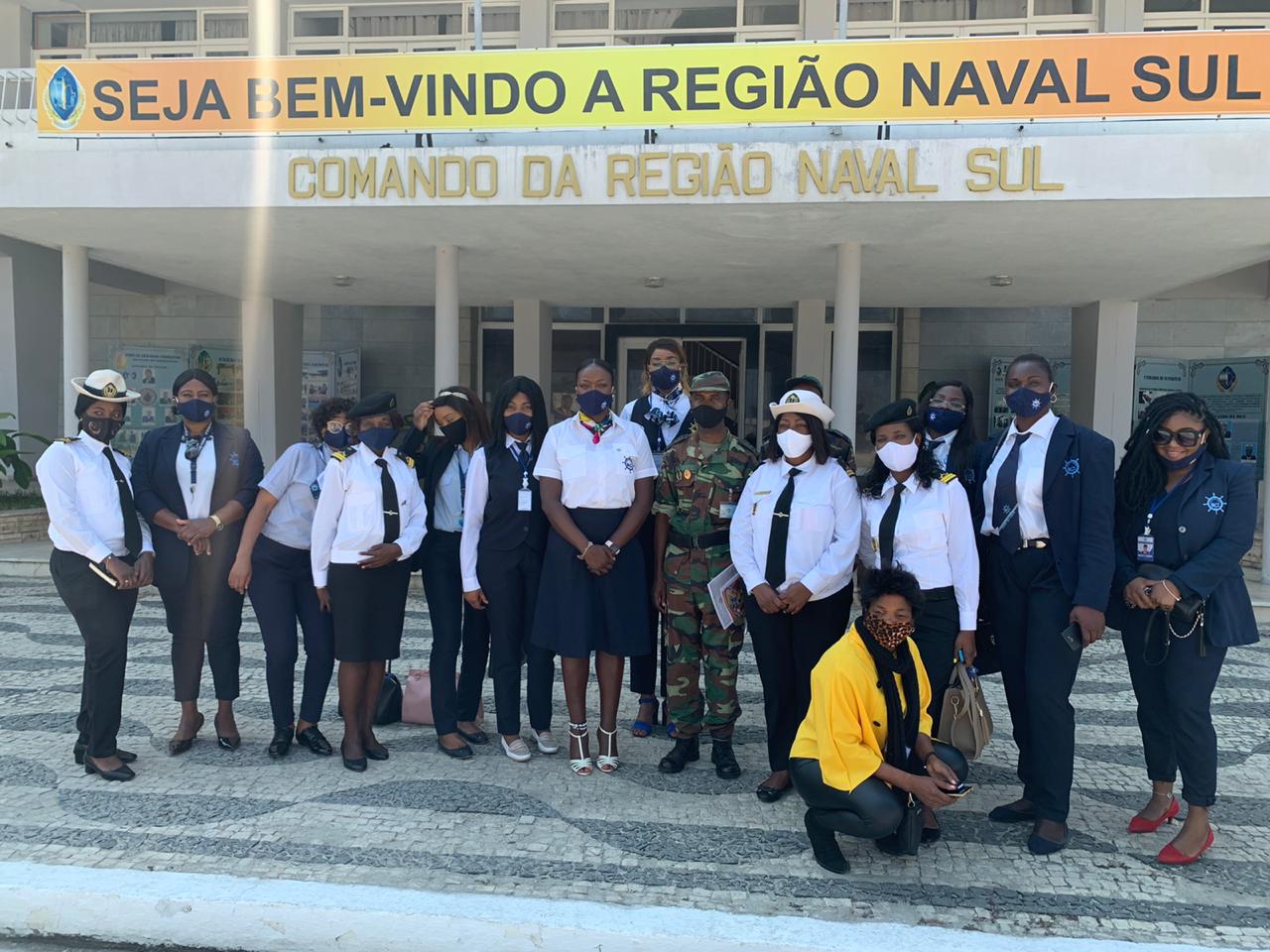
Women in about 47 African countries have come together to form WimAfrica, and we are still counting. We appreciate that there are over 52 African countries in our beautiful continent known as Africa. So we still have more countries to capture. And we are working very hard to ensure that we capture the Continent. Furthermore, in WimAfrica, we decided that our blue economy strategy should be what we call “a bottom-up approach. We would think globally and act locally. We think globally and act locally. So we set up national bodies of WimAfrica in our various African countries. Where we have WimAfrica in Côte d’Ivoire, we call it Wima Côte d’Ivoire, we have WimAfrica in Nigeria, we call it Wima Nigeria, Wima Togo, Wima Cameroon, etc.
Through our national chapters, we reach out to the hinterland and the coastal areas and empower the women and girl child, through knowledge sharing, provision of educational scholarships, provision of infrastructures for our women in the fishing communities, support for our Female Seafarers through the introduction of trained Seafarers to board foreign ships for the acquisition of requisite sea time, training young ones from tertiary institutions on waste museum and many more. We are proud recipients of the AU 2018 Special Award of Excellence of blue economy, in appreciation for the successful partnership with the Africa Union Commission, in the promotion of Africa’s blue economy, presented to us on 27 November 2018, in Nairobi, Kenya. This is one of our huge achievements and we are very proud of this.
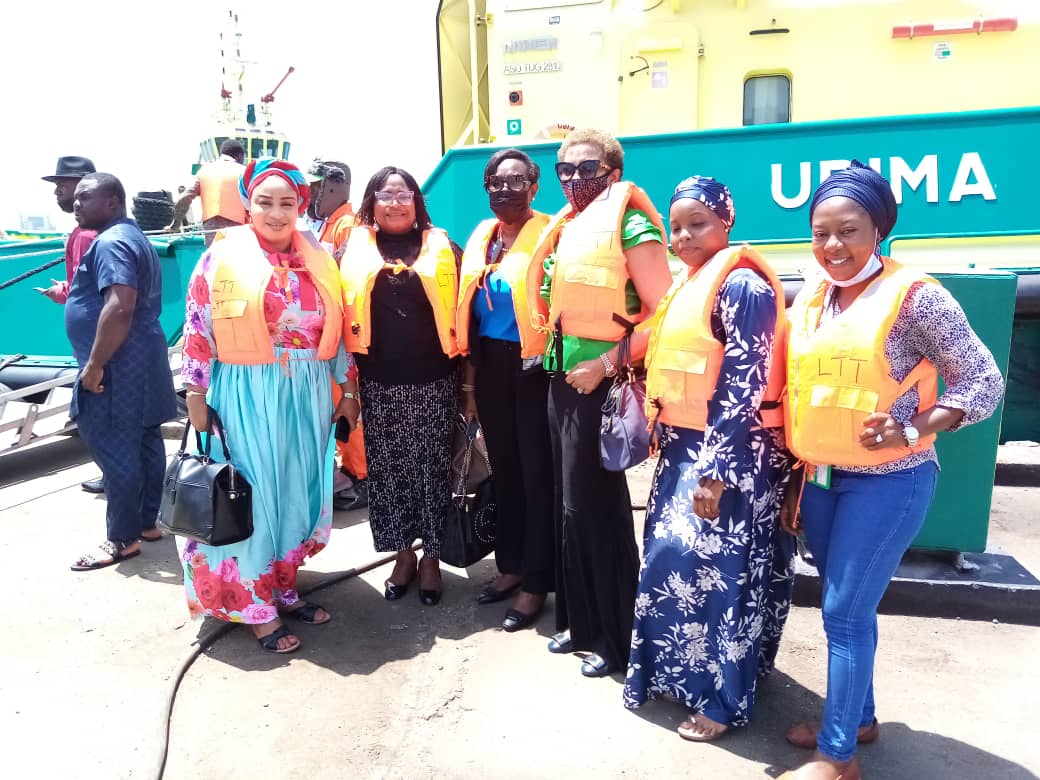
“One of our several actions is to reach out to the hinterland and the coastal areas and empower the women and girl child, through knowledge sharing, provision of educational scholarships, provision of infrastructures for our women in the fishing communities… to train young ones from tertiary institutions on waste museum and many more.”
Q.: How did the pandemic affect your activities and action plans?
A.: Yes it did affect us because we in WimAfrica we love to network. Meeting people of diverse intellect and reaching out to our numerous women you know is vital and necessary to our goals and for me personally, I cannot say that I am the Continental President and I don’t know where the countries of my member nations are. So I have actually almost covered the continent in Africa. The African tradition is about touching one another and being in contact. I must say here that in WimAfrica we have a slogan. When we meet one another in our various countries or events, seminars, even outside Africa, maybe in Europe, we greet one another, by saying: “UBUNTU”.
This is a Swahili word which means togetherness. We strongly believe that there is strength in unity. Strength in coming together as African women in maritime, under the umbrella of WimAfrica. So, not being able to network physically, nor hug one another again, in compliance with the COVID-19 guidelines, is a terrible impairment to our ideals and mission statement. These pandemic times have really affected our networking abilities and our activities in inaugurating new chapters in pomp and colour.
WimAfrica is also recognized by UNESCO and also by the IMO which sponsored our trip two years ago to Malta, where we participated in a global conference for women in the Maritime space. Sadly, we are unable to do that on a physical basis any longer and that is how it has affected us. A few of our members got contaminated before the introduction of the vaccines but thank goodness, no serious casualties. Despite all these challenges of Covid-19, we gained some benefits from the improved knowledge base of ICT. You know, technology in terms of IT is growing fantastically. We thank God for the webinars like you and I are having today. Through the zooms and webinars, we are able to put faces to our communications again, the network again, and improve our IT skills. That’s the takeaway from the Covid-19.
“Despite all these challenges of Covid-19, we gained some benefits by the improved knowledge base of ICT. Technology in terms of IT is growing fantastically and we took advantage of it to keep working… That’s the takeaway from the Covid-19.”
Q.: What the blue economy under the umbrella of WIMA, brings to tourism in local tourism in the African countries. What about the advantages?
A.: Yes, for tourism, let me say that Africa has lovely beaches, really. So with regards to the blue economy, we need to make our beaches, seasides and Oceans, attractive in order to attract tourists and promote tourism The blue economy actions here can create sustainable jobs for the local communities and youngsters too. As I said before in WimAfrica, our Blue Economy strategy is thinking globally and acting locally … and this is done through the support of our national chapters.
Thank you for your kind opportunity to showcase to the World, what our young and dynamic Organization known as WimAfrica is all about, as we welcome international collaboration and support towards safe, clean, and navigable oceans and seas, for the eventual improvement of climate change and benefit of mankind.
UBUNTU!


